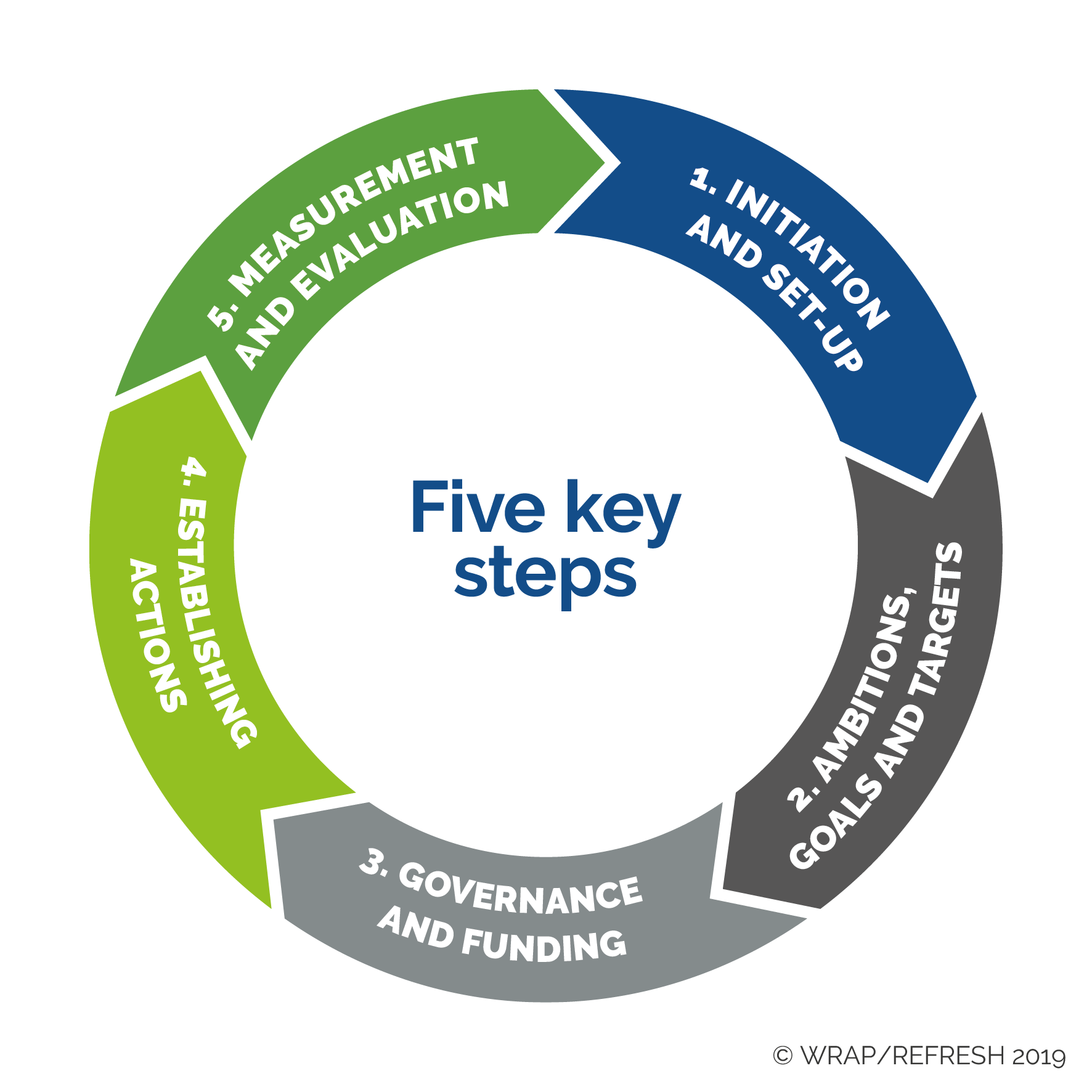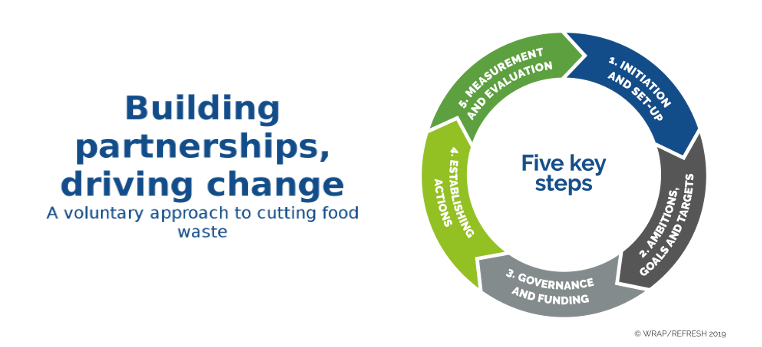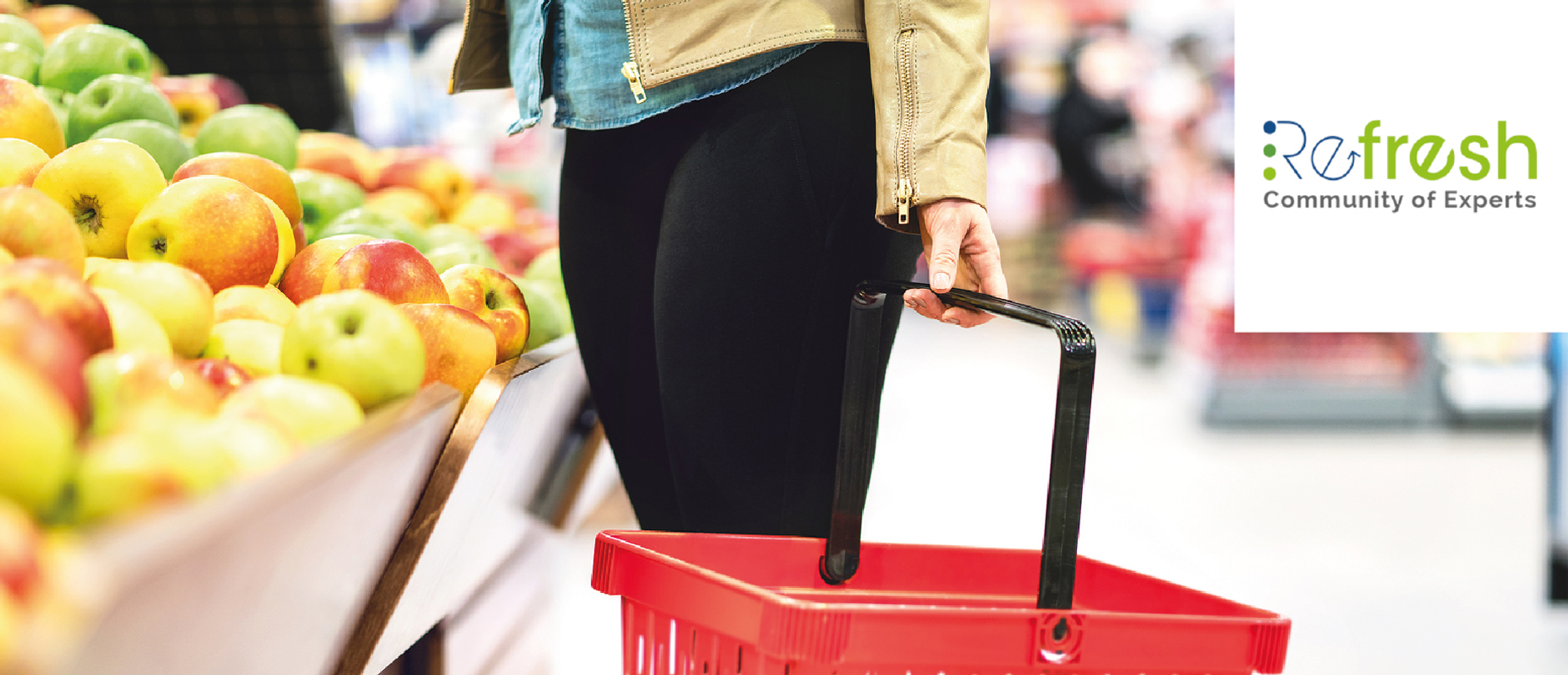Building partnerships, driving change: A voluntary approach to cutting food waste
Uploaded by: Kate Bygrave
Uploaded on: 14th June 2019
Author(s): REFRESH
- Share
Overview
 A voluntary agreement is a proven method for tackling food waste. By working together to achieve collective goals, organisations can collaborate and deliver change in the most efficient, effective way. Using practical examples from the REFRESH national programs, as well as WRAP’s UK success including Courtauld 2025, this guide outlines the steps necessary for building successful voluntary agreements.
A voluntary agreement is a proven method for tackling food waste. By working together to achieve collective goals, organisations can collaborate and deliver change in the most efficient, effective way. Using practical examples from the REFRESH national programs, as well as WRAP’s UK success including Courtauld 2025, this guide outlines the steps necessary for building successful voluntary agreements.
There is also an overwhelming business case for reducing food waste. Research in 17 countries around the world has shown that half of the businesses achieved a return on investment for food waste prevention programmes of 14 to 1 or better, with 99% of activities delivering a net positive return.
Working together through voluntary agreements, businesses can achieve real change faster and more cost-effectively. Voluntary agreements can:
- be set up without the need for new legislation;
- be implemented quickly and easily adapted to changing circumstances; and
- provide a safe, pre-competitive space for companies to work together.
Building partnerships, driving change outlines the proven 5-step model that should be followed in order to deliver a successful food waste voluntary agreement. These are:
- Initiation and setup
- Ambitions, Goals and Targets
- Governance and Funding
- Establishing Actions
- Measurement and Evaluation
If you want to find out more about setting up a voluntary agreement, please contact WRAP at VA@wrap.org.uk
To find out how the 5-steps were identified, please refer to the earlier REFRESH publication Success Factors
Contact name: Kate BygraveContact email: kate.bygrave@wrap.org.uk
More info link: eu-refresh.org
Start sharing your knowledge!
Upload your own resource and share your ideas with the rest of the community.
Sign In | Share




0 Comments